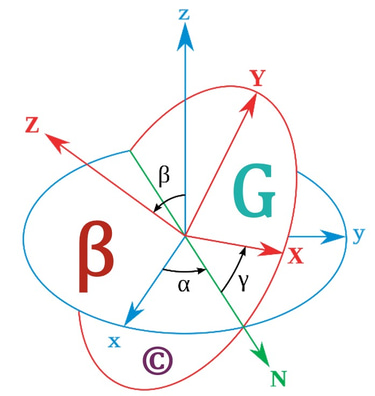The Importance of Engineering Coordination in Multidisciplinary Projects
In today’s rapidly evolving technological landscape, multidisciplinary projects have become the norm. Whether it’s constructing a smart city, developing a renewable energy system, or designing an advanced healthcare facility, these projects require the expertise of professionals from various engineering disciplines. While the diversity of skills and perspectives is a strength, it also introduces complexity. This is where engineering coordination plays a pivotal role. I’ve witnessed firsthand how effective engineering coordination can make or break a project. In this blog, I’ll explore the importance of engineering coordination in multidisciplinary projects and share strategies to ensure seamless collaboration among teams.
ELECTRICAL ENGINEERINGCRITICAL INFRASTRUCTURESPROJECT MANAGEMENT
Engr. Benjamin V. Gonzales Jr.
2/10/20252 min read
What is Engineering Coordination?
Engineering coordination is the process of integrating the efforts of multiple engineering disciplines to achieve a unified project goal. It involves planning, communication, and collaboration to ensure that all teams work in harmony, avoiding conflicts, delays, and costly errors.
In multidisciplinary projects, engineering disciplines such as civil, mechanical, electrical, structural, and software engineering often overlap. Without proper coordination, these overlaps can lead to inefficiencies, design clashes, and even project failure.
Why is Engineering Coordination Crucial in Multidisciplinary Projects?
1. Prevents Design Clashes and Rework
One of the most common challenges in multidisciplinary projects is design clashes. For example, the electrical team might design a system that conflicts with the structural team’s plans, leading to costly rework and delays.
Solution:
Use Building Information Modeling (BIM) tools to create a unified digital representation of the project.
Conduct regular coordination meetings to identify and resolve potential clashes early.
2. Enhances Communication and Collaboration
Multidisciplinary projects involve teams with different technical languages and priorities. Without effective communication, misunderstandings can arise, leading to errors and inefficiencies.
Solution:
Establish clear communication channels and protocols.
Appoint a dedicated engineering coordinator to act as a liaison between teams.
3. Optimizes Resource Utilization
When teams work in silos, resources such as time, materials, and manpower are often wasted. Engineering coordination ensures that resources are allocated efficiently across all disciplines.
Solution:
Develop a centralized resource management plan.
Use project management software to track resource usage in real time.
4. Ensures Compliance with Standards and Regulations
Multidisciplinary projects must adhere to a wide range of industry standards and regulations. Engineering coordination ensures that all teams are aligned and compliant.
Solution:
Conduct regular audits to verify compliance.
Provide training to teams on relevant standards and regulations.
5. Improves Project Timelines and Budgets
Delays and cost overruns are common in multidisciplinary projects due to poor coordination. Effective engineering coordination helps keep the project on track and within budget.
Solution:
Create a detailed project schedule with input from all teams.
Monitor progress closely and adjust plans as needed.
Strategies for Effective Engineering Coordination
1. Leverage Technology
Modern tools like BIM, cloud-based collaboration platforms, and project management software are essential for engineering coordination. These tools enable real-time sharing of information, reducing the risk of errors and miscommunication.
2. Foster a Collaborative Culture
Encourage open communication and mutual respect among teams. A collaborative culture ensures that everyone is working toward the same goal.
3. Define Roles and Responsibilities
Clearly outline the roles and responsibilities of each team to avoid confusion and ensure accountability.
4. Conduct Regular Coordination Meetings
Schedule regular meetings to review progress, address issues, and align on next steps. These meetings should include representatives from all disciplines.
5. Invest in Training and Development
Provide training to teams on coordination tools, processes, and best practices. This ensures that everyone is equipped to contribute effectively.
Real-World Example: The Role of Engineering Coordination in Smart City Development
Consider the development of a smart city, which involves integrating infrastructure, transportation, energy, and technology systems. Without engineering coordination, the electrical team might install sensors that interfere with the structural team’s designs, or the software team might develop systems that are incompatible with the existing infrastructure.
By implementing robust engineering coordination practices, such as using BIM tools and holding regular coordination meetings, these challenges can be mitigated, ensuring a seamless and efficient project execution.
Conclusion
Engineering coordination is the backbone of successful multidisciplinary projects. It ensures that all teams work together harmoniously, preventing conflicts, optimizing resources, and delivering projects on time and within budget. At BG Consultancy, we understand the critical role of engineering coordination and are committed to helping businesses navigate the complexities of multidisciplinary projects.
If you’re embarking on a multidisciplinary project and need expert guidance, visit us at www.bgconsultancy.net. Let’s work together to turn your vision into reality.





